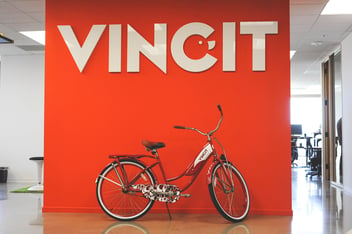I wonder how much that person’s getting paid? Salaries have traditionally been considered a private affair but in recent years attitudes have gone through a significant change: today, salaries are discussed more widely and with more confidence than ever before. Salary-related discussions are important on a social level, as they serve to eradicate unjust pay differentials and compensation discrimination. There should be no reason to consider salaries taboo.
Dispelling misconceptions
Salaries are not only a matter of financial safety but often linked with numerous personal and symbolic meanings. A sizable salary may attract criticism and envy. By contrast, a person with a small salary can easily feel that they’re being treated unfairly.
Salary-related feelings are created through comparing one’s own situation with that of others. Facts related to the size of the paycheck may be collected from individual bits of information that people gather from various sources, such as their friends, colleagues, and salary reports published by the media. However, this patchwork of information can lead to a distorted image: the information used for comparison may not be commensurate with the person’s situation.
Salary Weeks reveal the figures
In 2012, Vincit implemented its open salary policy, which aimed at making the salary model more fair and transparent. The people at Vincit also expressed their wish for more detailed information and more clearly stated grounds for their salaries.
Vincit’s open salary policy includes something called Salary Weeks, organized once or twice a year. During the Salary Weeks, each employee gets to choose whether they want to have their salary made public. Most people have opted for publicizing their salary. Previously, names and salaries were made public at the company level, but last year the disclosure of names was business unit-specific, while the entire company received an anonymized report. The salary policy continues to develop and evolve along with the organization.
Openness builds on trust. As a company gets bigger, the possibility of knowing everyone personally disappears and people stop being aware of everyone else’s job descriptions. This is why particularly new employees have sometimes wanted to keep their salary a secret. The growth of a company also creates new roles and salary criteria. In the early years, 85–93% of the employees shared their salary information, while last year the number had dropped down to around 50–85% depending on the unit. In a growing company, it is important to keep track of the employees’ willingness to share their salary information – either to the entire organization or to a smaller group of people – and think about how detailed the information should be.
Besides making salary information available, our Salary Weeks give the opportunity to bring up the matter of pay raises. After the salaries have been publicized, Vincit employees can suggest a raise for a person – themselves included – who in their opinion deserves one. The grounds for a raise is determined by the value the person has brought to a client project or the work community. After the raise proposals, the managers and HR go through the suggestions and make their decisions.
Involving the employees in discussions
The Salary Weeks have been a recurring event at Vincit for nearly a decade. Our salary model is constantly evolving, and our employees’ expectations play a role in its development. Allowing the workers to express their wishes and views in salary-related discussions creates a more transparent organizational culture. The fewer uncertainties and secrets there are, the more open and trustworthy the company is and the happier the employees are. Employee engagement is key to a successful company.



